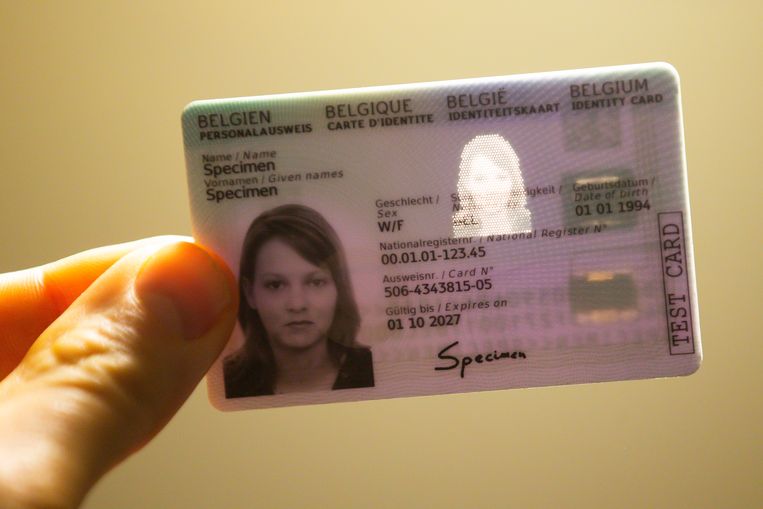All municipalities in Belgium will issue the new eID cards - which include the holders’ fingerprints - from now on, after the roll-out was delayed by the coronavirus crisis last year.
In 2020, 53,269 new eIDs were already distributed across Belgium, and everyone who applies for a new card will receive a renewed eID, including fingerprints, from now on, according to Minister for the Interior, Institutional Reform and Democratic Renewal Annelies Verlinden.
"With this new identity card, we have an even more secure identity and travel document in our pocket," said Verlinden in a press release, stressing that the changes will help protect citizens against identity fraud schemes.
The fingerprint is secured and will only be accessible via the contactless chip of the card. They will not be stored in a central database, and only the competent authorities will be able to read the chip.
The current eID cards, which do not have the holders' fingerprint, will remain valid, and will only be replaced by a fingerprinted one in case of loss, theft or damage, or at the end of their period of validity.
Related News
- Fingerprint ID cards will be issued across Belgium by end of year
- What changes on the new Belgian eID cards
- Antwerp begins fingerprint scanning ahead of new ID card launch
When the period of validity is almost up, people will get a letter informing them to replace the old card. In certain cases, such as a name change or if the holder no longer looks like the picture, the ID card will also immediately be replaced by a fingerprinted one.
"A combination of your fingerprints and the perforated photograph on the back makes forging more difficult, and enables us to step up the fight against identity fraud," Verlinden added.
The integration of fingerprints on the eIDs is in line with the European Regulations 2019/1157 of 20 June 2019, which requires Member States to include fingerprints on their identity cards, according to her.
According to some critics, however, the inclusion of fingerprints could violate holders’ privacy, and a study by a cyber and computer security research group at KU Leuven hit out at the decision calling its impacts on privacy “unclear” and “disproportionate.”
At the beginning of 2020, a pilot project started in the municipality of Lokeren. Gradually, the other municipalities followed suit, but the roll-out across the entire country was partially delayed amid the coronavirus crisis.
Apart from the inclusion of the holders' fingerprints, the new eID will also see the photo on the left of the card instead of the right, a perforated image of the photo on the back, and different colours.
Additionally, the contact chip has moved to the back of the card, which means that the card has to be inserted in the card reader in a different way, and the nationality will be shown as 'BEL' instead of 'BELG'.
It is estimated that all Belgian residents will hold a new eID card, including fingerprints, from 2030 at the earliest.
Maïthé Chini
The Brussels Times

